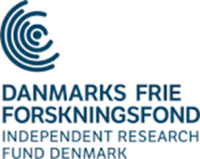Patterns of Interaction: Emergence and Consequences
This ongoing project examines the nature and emergence of social interactions - and whether and how they can be shaped to facilitate organisational performance. By focusing on how formal and informal structures shape the formation of realised interactions, the project builds on, and extends, an emerging stream of literature within the area of Organizational Design.
Using advanced wearable devices, we will obtain data related to realised interactions, including psychophysiological measurements, enabling insights at a micro-scale level, and with a temporal granularity, previously difficult to obtain. We will combine this data with traditional network analysis as well as simulation studies to verify and generalise the empirical findings. The empirical setting for the project is a large financial institution.
Because social interactions are paramount for information exchange and organisational performance, the project's insights are relevant for public and private enterprises.
What advantages does an organization that takes part in our research project get?
Our analytics can help with employee retention
• The analysis can identify the "work/life" balance for employees in different units.
• The analysis can identify problems with stress and "burnout".
• The analysis can help prevent employees or groups of employees from becoming isolated.
Our analysis can look at the cohesion of the company and how it can be improved
This covers how integrated the various units and groups are within the company, e.g., are there units that are not well integrated? Are there units that should be more integrated than is currently the case?
• The analysis can help to find potential lost opportunities in the organization due to a lack of coherence
• The analysis can identify the informal organization
• The analysis can help find the right balance between physical work and work from home
• The analysis can help stimulate creativity and improve processes
In addition, there are a number of other potential benefits, e.g., to understand the culture in the office, identify informal leaders, and improve knowledge transfer in the organization.
Project collaborators are:
Dorthe Døjbak Håkonsson, ICOA, AU; Erik Larsen, ICOA, AU; Kyusuke Tanaka, ICOA, AU; Christine Parsons, IMC, AU; Gianluca Carnabuci, ESMT; Eric Quintane, ESMT.
The project is funded by the Danish Independent Research Council (DFF).
